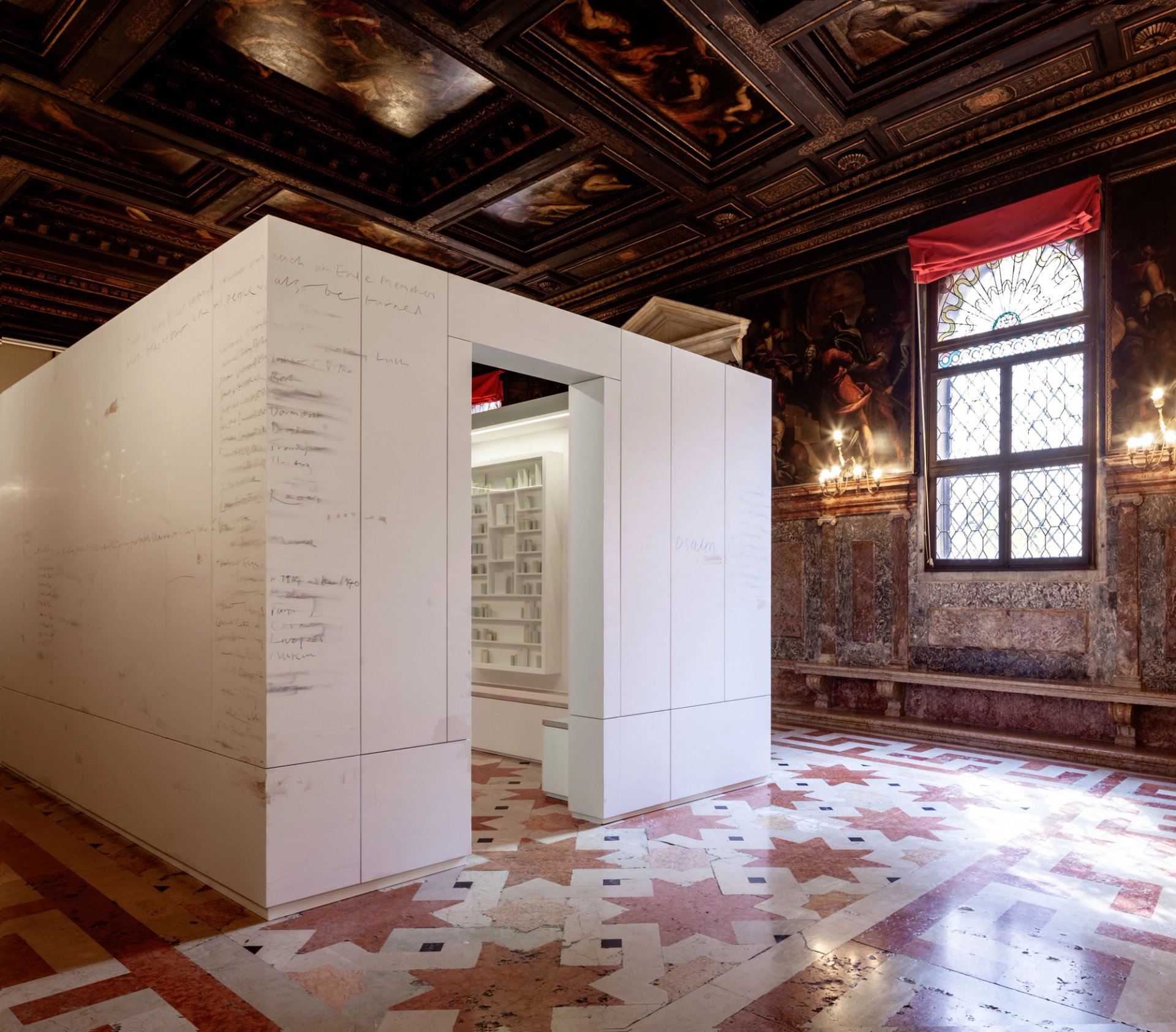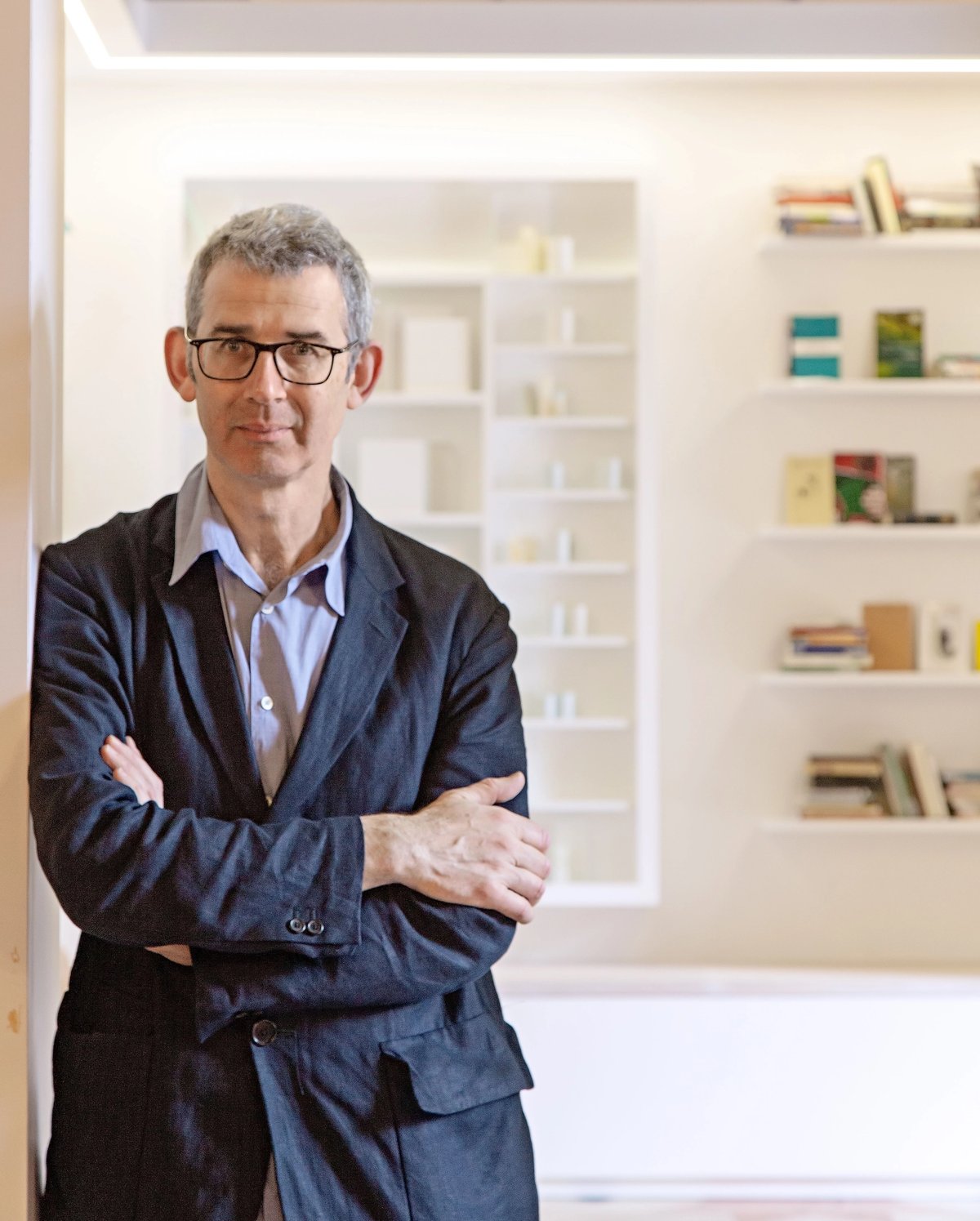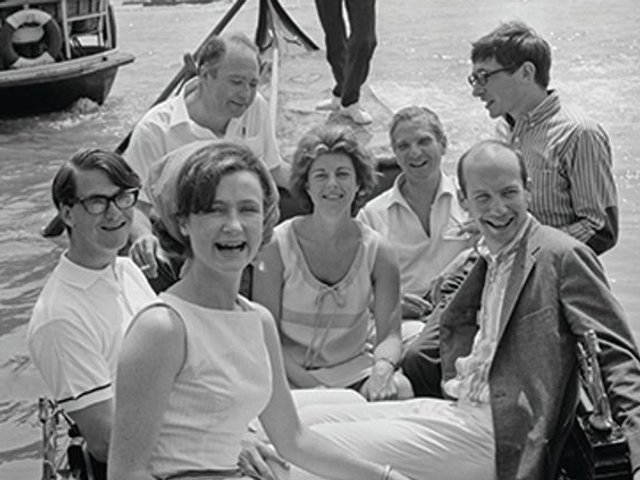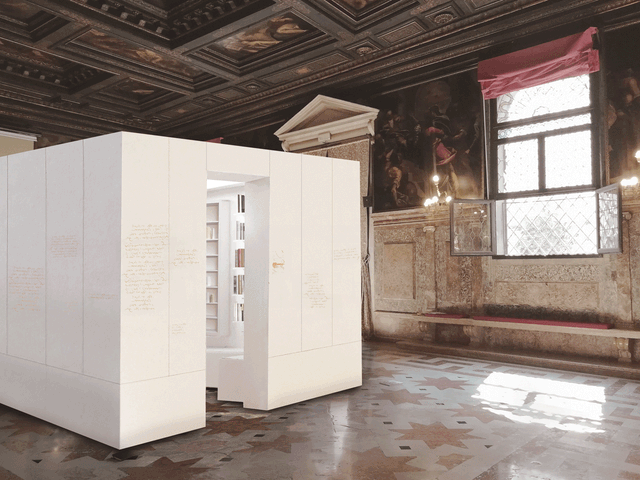A library housing 2,000 books by exiled writers on show in Venice, assembled by the writer and ceramicist Edmund de Waal, will tour to the British Museum in London and the Japanisches Palais in Dresden. The library of exile, currently on display at the 15th-century space Ateneo Veneto during the Biennale, is part of a two-part exhibition called psalm (until 29 September).
Visitors are encouraged to read and write in the books, most of which are in translation. De Waal has inscribed the names of lost libraries on the exterior of the specially built structure, which will be presented in Dresden from November to February 2020, followed by the British Museum. De Waal announced the news at a briefing today held by The Art Newspaper in Venice, saying that “for it to continue its travels to Dresden and then London is wonderful”.

Edmund de Waal's The library of exile (2019) at Ateneo Veneto © Edmund de Waal. Courtesy of the artist. Photo: Fulvio Orsenigo
Hartwig Fischer, the director of the British Museum, says in a statement: “Edmund de Waal’s library of exile addresses questions that matter: How can we share ideas across the world to shape the future, how can we translate great works of great minds from one language to another.”
Four vitrines of porcelain vessels, inspired by Daniel Bomberg’s Renaissance printing of the Talmud, hang on the walls within. Bomberg (1483-1549), who employed rabbis at his Venetian publishing house, was one of the most influential printers of Renaissance texts. A programme of events, performances and debates across both spaces explore themes such as migration and exile.
The second part of psalm is installed in the Jewish museum in the Ghetto Novo located in the north-western Cannaregio sestiere (district) of Venice. De Waal’s installations of porcelain, marble and gold are displayed in vitrines around the Canton Scuola synagogue which is housed at the museum.




